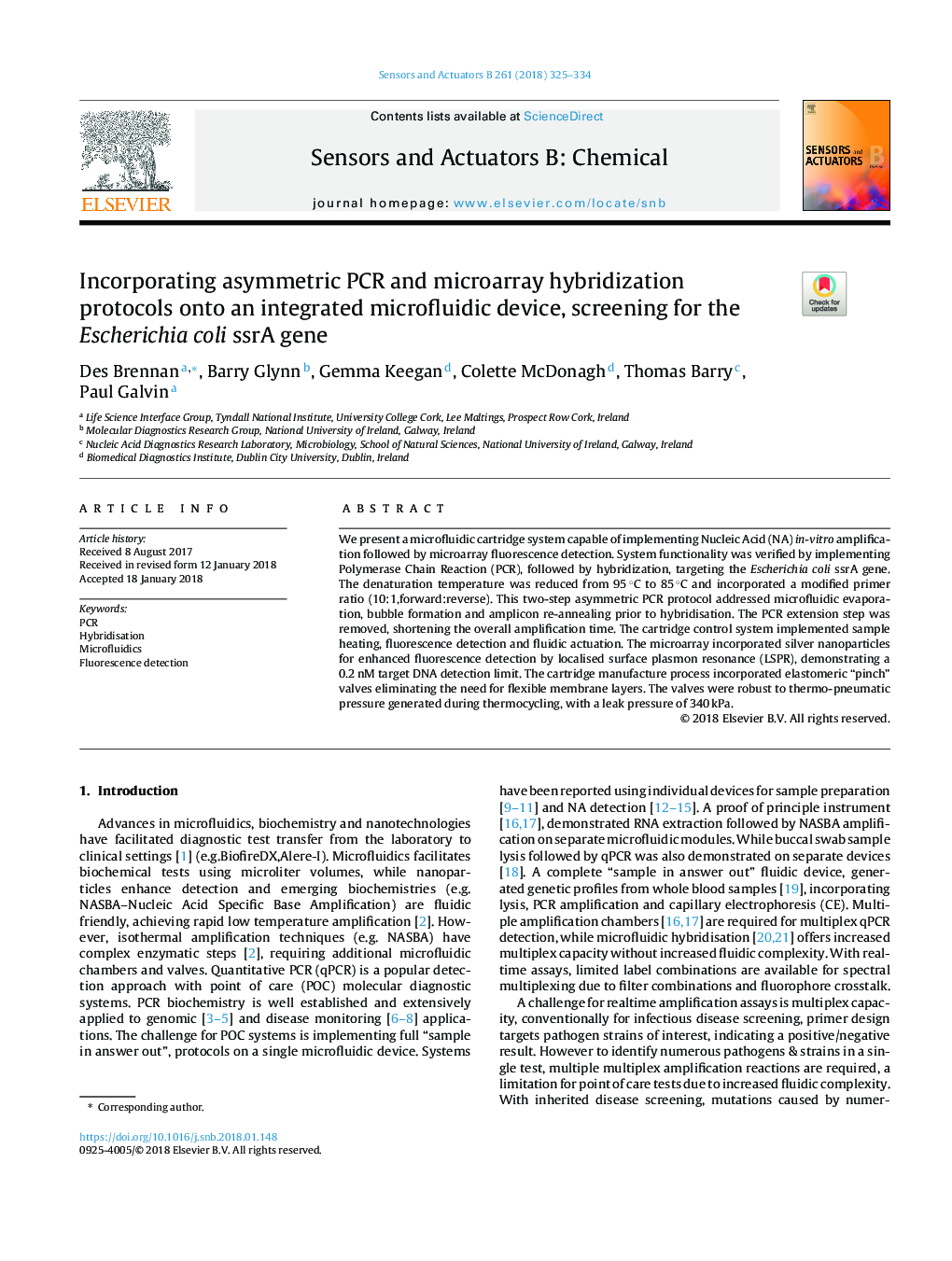| Article ID | Journal | Published Year | Pages | File Type |
|---|---|---|---|---|
| 7140570 | Sensors and Actuators B: Chemical | 2018 | 10 Pages |
Abstract
We present a microfluidic cartridge system capable of implementing Nucleic Acid (NA) in-vitro amplification followed by microarray fluorescence detection. System functionality was verified by implementing Polymerase Chain Reaction (PCR), followed by hybridization, targeting the Escherichia coli ssrA gene. The denaturation temperature was reduced from 95â¯Â°C to 85â¯Â°C and incorporated a modified primer ratio (10:1,forward:reverse). This two-step asymmetric PCR protocol addressed microfluidic evaporation, bubble formation and amplicon re-annealing prior to hybridisation. The PCR extension step was removed, shortening the overall amplification time. The cartridge control system implemented sample heating, fluorescence detection and fluidic actuation. The microarray incorporated silver nanoparticles for enhanced fluorescence detection by localised surface plasmon resonance (LSPR), demonstrating a 0.2â¯nM target DNA detection limit. The cartridge manufacture process incorporated elastomeric “pinch” valves eliminating the need for flexible membrane layers. The valves were robust to thermo-pneumatic pressure generated during thermocycling, with a leak pressure of 340â¯kPa.
Related Topics
Physical Sciences and Engineering
Chemistry
Analytical Chemistry
Authors
Des Brennan, Barry Glynn, Gemma Keegan, Colette McDonagh, Thomas Barry, Paul Galvin,
